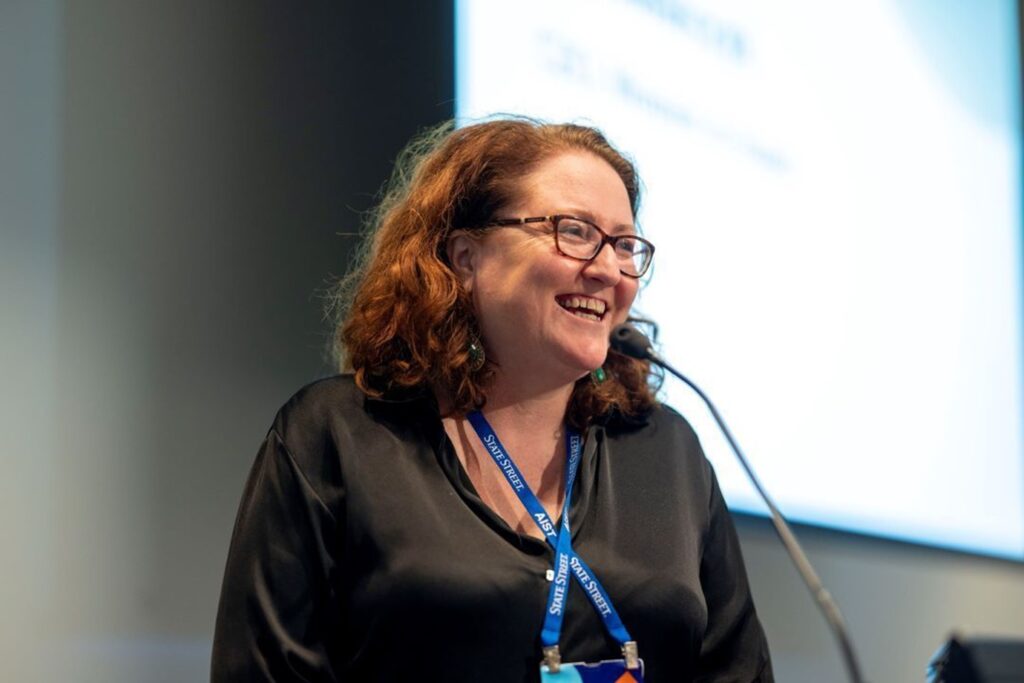Former union worker Jo Kowalczyk knew some women had worse outcomes with their retirement funds but it wasn’t until she began a career in superannuation that she realised how serious the gap actually is.
When Jo became the CEO of Women in Super, she was excited to make a positive difference. Very quickly she discovered just how critical this purpose would be.
Recent data from the Australian Bureau of Statistics shows a 20.5 percent difference in superannuation balances for women and men aged 15 and over.
The impact of lower pay and dips in super contributions lead to grave outcomes for women later in life.
According to the Household, Income and Labour Dynamics in Australia survey, Australian women who are single and aged over 60 are more likely to live in poverty.
“The size of the gap was still a surprise,” says Jo.
“But [our] superannuation system is world-best and you know we should be rightly very proud of it [but] it’s a real deficit model for women like the way it has been designed has these inferior outcomes for women and I think that really was probably the biggest surprise for me.”
She says one of the most frustrating things about this problem is the tendency to put the onus on women to fix it by asking them to make additional payments or figure out ways to advance their financial literacy.
Jo strongly believes the way it is set up should be the focus instead, as she explains in the latest episode of our podcast series, Spotlight On Women, thanks to our partnership with Grant Thornton.
“We are talking about structural and systemic issues,” she says.
“It is a universal system and a universal system can’t work for everyone if a certain proportion of the people have to do something additional to it to make it work.”
How to make super work for everyone
As the head of a non-profit actively working to improve retirement outcomes for women, Jo says there are three key changes that need to happen to make the superannuation system work for everyone.
The first is to bring about legislative change so super contributions are made on paid parental leave.
“It’s just such a no-brainer,” she says.
“It’s the only form of leave that doesn’t attract a super guarantee on it.
“Annual leave, sick leave, long service leave, all get super paid on it and in this day and age we can’t be having a form of leave that’s predominantly still accessed by women not having that. The pressure is on for the government to deliver that in the budget.”
The second key issue Jo and her team have been eyeing is the low-income super tax offset, which gives eligible taxpayers with annual incomes of $37,000 or less a refund into their superannuation account which is capped at $500.
“We have this ridiculous situation where low-paid workers who are predominantly women are paying more on their super that they would put in than they are on their take-home pay,” she says.
“Everybody else gets tax concessions to ensure that they’re paying less tax on their super. And it’s just because the tax threshold and the lower-income super tax offset haven’t kept at pace with each other.”
Jo says this is another immediate fix in the system that could benefit many in Australia.
But one of the more complex problems she believes could transform retirement life for women around Australia if they could solve it, is finding a way to offset the impact of unpaid care on super balances.
The Women’s Economic Equality Taskforce report found women spend 30.2 hours per week on unpaid care and housework, compared to 21.8 hours for men.
Though this work helps prop up the economy, it is not valued or understood in that way.
“This is the issue of unpaid care, the undervaluing of care work and the impact that has on retirement outcomes in terms of there not being any super paid during those periods of care,” she says.
These are critical issues that need sweeping legislative, cultural and structural changes but Jo is hopeful that with dedicated leadership, collaboration and collectivism, solutions will be brought to life.
“I find it really important to have a connection as a leader but also for the people I work with to feel connected to the vision that we have together [and the] positive impact we can have,” she says.
“It’s about working together towards a shared objective.”
Hear more from Jo Kowalczyk on episode five of the Spotlight on Women series, where Women’s Agenda examines key industry areas to profile women building game-changing and influential careers with purpose, thanks to our partnership with Grant Thornton Australia.


